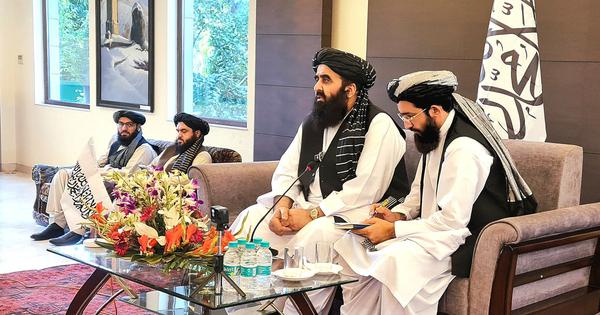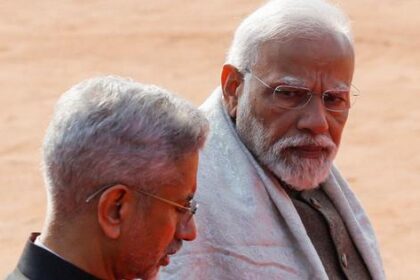Muttaqi describes incident as a technical issue; Editors Guild criticizes gender discrimination in press access.
During a press conference in Delhi, Afghan Foreign Minister Amir Khan Muttaqi addressed the absence of women journalists, stating that their exclusion was a result of a “technical issue.” This remark came after criticism regarding the decision not to invite female reporters to a previous press event held at the Afghan embassy. The minister clarified that the participation list had been created quickly and was very specific, resulting in the short notice given to journalists. He emphasized that there was no intention to discriminate against women, asserting that the invitation was directed towards a predetermined list of journalists.
On the previous Friday, several journalists expressed their discontent over the exclusion of women from the event, labeling it as unacceptable. This incident has drawn attention to the broader context of the Taliban’s record on human rights, particularly concerning women and minorities. Since the Taliban regained control of Afghanistan in August 2021, they have imposed significant restrictions on women’s rights, including banning education for girls beyond the sixth grade and limiting their participation in various sectors of society.
The Editors Guild of India responded to the incident by condemning the exclusion of women journalists, stating that the diplomatic premises do not justify gender discrimination in press access on Indian soil. They urged the Indian government to ensure that gender equity is respected at diplomatic events within the country. The Guild’s statement highlighted concerns over the implications of allowing such discriminatory practices to proceed without objection.
In the aftermath of the incident, the Ministry of External Affairs clarified that it had no role in organizing the press conference held by Muttaqi. The ministry’s statement followed independent journalist Smita Sharma’s comments on social media, where she pointed out that External Affairs Minister S. Jaishankar had not addressed the plight of Afghan women during his meeting with Muttaqi earlier that day. This meeting marked a notable engagement between New Delhi and the Taliban, as Jaishankar announced plans to reopen India’s embassy in Kabul.
Despite the Taliban’s governance, India has not officially recognized the regime. However, it has permitted the Taliban to appoint a consul general in Mumbai and has established a technical team at its diplomatic mission in Kabul. The political dynamics surrounding this engagement have sparked debate, with critics questioning the implications of hosting a Taliban delegation while women’s rights are being compromised.
Congress leader Priyanka Gandhi Vadra weighed in on the matter, urging Prime Minister Narendra Modi to clarify his stance on the treatment of women journalists in this context. She emphasized that the treatment of women in India should reflect the country’s values and pride in women’s contributions to society. The ongoing situation has raised broader questions about the intersection of international diplomacy and domestic values, particularly concerning human rights and gender equality.
As discussions surrounding these events continue, the Afghan Foreign Minister’s comments and the subsequent reactions from various stakeholders underscore the complexities involved in diplomatic relations with the Taliban, particularly in light of their controversial policies regarding women’s rights.








